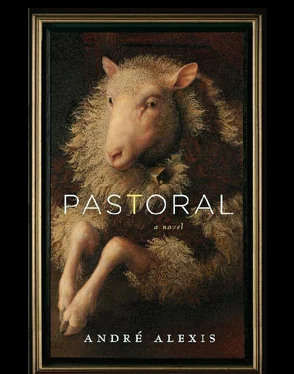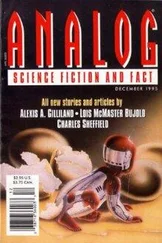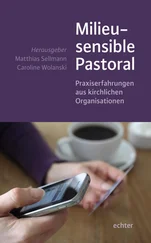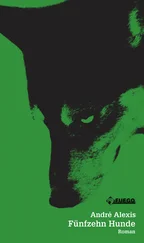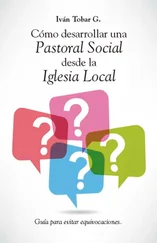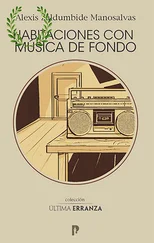— Christopher, how do you know that I am not your Lord?
— My Lord has no reason to speak to me, he answered. I’m not the kind of man God seeks out. You have me confused with some other, better man.
— Lowther has broken your faith, said the sheep.
Father Pennant smiled. His spirits lifted and he entered more fully into the game. He spoke to the sheep — Lowther, obviously — as if it were, in fact, God.
— There is something you can do for me, he said. Teach me to be satisfied with the world and everything that’s in it.
— My son, said the sheep, that’s a tragic thing you’re asking me to give. You should not be satisfied with the things of this world, however seductive they are.
Father Pennant laughed.
— No, he said, that is exactly what I want. No miracles, just the plants and animals and the sky above. That’s all the mystery I need.
— I’ll give you what you’ve asked for, said the sheep, but allow me a few words. You’re on a road that leads to disappointment. Of course, it’s wonderful to contemplate Nature, but without the miraculous the earth is only a coffin. What you should ask for is a restoration of your belief in miracles. You would still have the earth and all that’s beautiful, but you would again be open to more than you can conceive. Let me help you imagine it. Look over there. I will set those trees on fire.
No sooner said than three maple trees on the other side of the creek caught fire: flames from their roots to their highest leaves. It was a peculiar fire, though: noiseless and without smoke. The flames themselves were more like supple red and orange crystal. It was like the idea of fire rather than fire itself. A hologram, thought Father Pennant, one of Heath’s holograms. But it was impressive all the same.
— That’s lovely, said Father Pennant. Well done. Really well done, but I prefer the trees to the illusion.
— I understand, said the sheep, and I’ll give you what you’ve asked for. From now on you will be satisfied by the things of the earth. If ever, someday, you wonder if there is more, come back to this place and cut those three trees. The first will bleed, the second will give honey and from the third you’ll have water. If ever you do this, you will know that I am the Lord and that there is more to the world than the world itself.
— It’s a deal, said Father Pennant, smiling.
He turned toward the maples. They were no longer alight. He turned back to admire the sheep, but it had gone. The hologram, it seemed, had been turned off. A perfect illusion. And it was a joy to have had things done so well. He supposed that Heath and Lowther had prepared the trees so they would bleed, give honey or water. He was tempted to try them, so their time and effort would not be wasted, but he was tired. He had been walking for a while and it was time to go back. Moreover, he was impatient to talk to Lowther, to tell him how much he appreciated all the work they’d done in order to test him. His spirits were raised. He was deeply moved by the care that had gone into the illusion. He saw the attention to detail — the sheep, the trees on fire — as a form of respect, and he was grateful to Lowther.
The thought that he had actually encountered God was amusing, but it did not stay with him for long. He did not believe that any supreme being would waste its time on him and, perhaps more significantly, he did not want the attention of God. The miraculous was the last thing he wanted. And if he avoided testing the trees for blood, honey and water, it was not only from fatigue. It was also because, deep inside, he refused to entertain the idea that the sheep he’d seen was divine.
As he walked along the road home, his thoughts turned to Elizabeth Denny. He wondered if Lowther could come up with an illusion that would amaze her and direct her thoughts to the things she needed to take into account: Nature above all. It struck him, in fact, that the same sheep he’d seen might well work for Elizabeth, because he took, as he walked back to the rectory, such joy in the natural world: the sharp pine smell of the spruce trees, the wet earth drying in late afternoon sunlight, the stillness of the clouds above. In other words, it couldn’t hurt to have Elizabeth feel how great the world was, how sufficient. It was a feeling that put everything else into perspective.
As Father Pennant was thinking about Elizabeth and the peace Nature might bring her, Elizabeth was thinking — again and again and inescapably — about love. She wondered what, exactly, love was and if she was, in fact, possessed by it. Like a cloud of midges, the questions pestered her.
Why did people fall in love? Why in love? Wasn’t love within us? Was the love within different from the love one fell into? Did love need an object? Did it need a person? Was love still love if unrequited? Was it love if the object of one’s love was unworthy? Could she marry a man she no longer loved in the hope she would fall in love with him again?
Any one of these questions could have kept a mind busy for months. Worse, all of them had answers that were as difficult to deal with as the questions themselves. The answers seemed to lead her further and further from her own feelings. In any case, they did not bring her closer to Robbie. Nor did they make her decision to carry through with the wedding easier to accept. Never had she been so unsure of anything. In the past, when doubt or ambivalence troubled her, Elizabeth had turned to her work for comfort. Doing, doing something , was her best way out of the disquiet: learning to make bread, helping her aunt and uncle with whatever needed to be done — housecleaning or sod cutting. But her doubts about love could not be quelled by physical activity.
So, what was love to her? It was Robbie and it was not Robbie. It was Robbie’s body, his arms and back. It was nothing physical, though it could be set off by the physical, by the memory of the physical, by the memory of a memory. Love was a scene in which she saw herself. It was at the heart of who she was. It was peripheral. It was a moment. It was a thousand moments she had shared with Robbie. But it did not matter that it was Robbie in particular because, in these moments, adrift from herself, she was not Elizabeth Denny. Love was a kind of anonymity, an anonymity in which she was (chiefly) ‘a woman in love.’ It turned her into someone else, into Charlotte Brontë, into Emma Bovary, into the woman in Brief Encounter , so in love with Trevor Howard she would sacrifice her happiness for him. No sooner did she imagine herself as other, however, than she was thrown back on the very Elizabethness of everything she was and all that she wanted. And so, at nearly every turn, waiting like a sentinel for the answer to the first question (‘What is love?’), was a further question: ‘Who am I?’
What is love/Who am I?
Who am I/What is love?
Neither question could be answered without answering the other.
Unexpectedly, this impasse brought relief. ‘Who am I?’ was a more daunting question, in some ways, than ‘What is love?’ but thinking about herself and her life, her aspirations and desires, brought the question of love into sharper focus. It became clearer to Elizabeth that, whatever love was, she was no longer the girl who had been ‘in love’ with Robbie Myers. She was a woman considering marriage with a man named Robert Myers, a man she now knew as fallible, someone who was as liable to hurt her as not. It was a gift to know this, to think it, to face its implications.
As Elizabeth was thinking about love and Father Pennant was thinking about Nature, Lowther Williams was thinking about life.
Читать дальше
